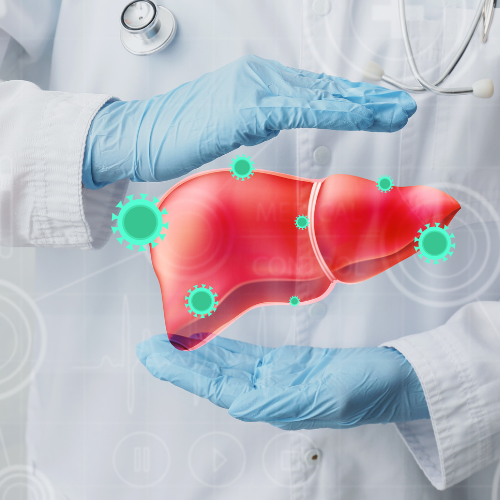The cost of liver cancer treatment in India can vary significantly based on the type of treatment required, the stage of the liver cancer, the facilities and technology available at the hospital, and the city where the treatment is being sought. Below, we detail the approximate costs of liver cancer treatment in major Indian cities and how HealZone Medical Tourism can help in selecting the best liver transplant hospitals and surgeons.
Hepatectomy Surgery:
Starting from 600,000 to 750,000 INR.
Radiation Therapy: Starting from 285,000 to 435,000 INR.
Chemotherapy: Starting from 22,500 to 45,000 INR per cycle, depending on the drug used.
Liver Transplant: 1,875,000 to 2,625,000 INR.
Accommodation Near Hospital: Starting from 1,350 to 3,750 INR per night, depending on the hotel.
Food Costs: Starting from 1,500 to 2,250 INR per day.
Miscellaneous Costs: 1,500 INR per day.

HealZone Medical Tourism is recognized as a premier provider of healthcare services, with over a decade of expertise in delivering top-quality treatments at cost-effective rates. We assist our international clients in selecting the ideal treatment destinations that align with their budget and medical requirements.
- Extensive Experience: We have more than ten years of experience guiding patients to the best care options.
- Commitment to Transparency: We ensure complete transparency in all our interactions and services.
- Expert Medical Team: Our network includes some of the most highly skilled cancer specialists in India.
- State-of-the-Art Technology: We utilize cutting-edge technology for all surgical procedures.
- High Success Rates: Our treatments meet international standards and have high success rates.
- Cost-Effective: We offer affordable solution for Liver cancer treatment in India, making high-quality care accessible to more patients.
Liver cancer, also known as primary liver cancer, can occur when the liver cells themselves become cancerous. When cancer starts elsewhere in the body and spreads to the liver, it's called liver metastasis. Liver metastasis refers to cancerous tumors in the liver that originated from cancer in another part of the body. Liver cancer is typically categorized into stages I, II, III, and IV based on how far it has spread. In many cases, determining the exact cause of liver cancer can be difficult.
1. Hepatocellular carcinoma (HCC)
2. Fibrolamellar carcinoma
3. cholangiocarcinoma (bile duct cancer)
4. Angiosarcoma
5. Hepatoblastoma
Liver cancer refers to the malignant tumors that form in or on the liver. Here's an overview of the key aspects related to liver cancer, including symptoms, risk factors, surgical preparation,
the surgical procedure, post-procedure care, success rates, and frequently asked questions.
The symptoms of liver cancer might not be noticeable in the early stages, but as the disease progresses, symptoms can include:
- Sudden weight loss
- Loss of appetite
- Upper abdominal pain
- Nausea and vomiting
- General weakness and fatigue
- Liver enlargement (hepatomegaly) or swelling in the abdomen
- Jaundice (yellowing of the skin and eyes)
- White, chalky stools
Several factors can increase the risk of developing liver cancer:
- Chronic infection with hepatitis B virus (HBV) or hepatitis C virus (HCV)
- Cirrhosis, which can be caused by alcohol abuse, nonalcoholic fatty liver disease, and chronic hepatitis
- Conditions like hemochromatosis and Wilson’s disease
- Diabetes
- Aflatoxin exposure (toxins produced by certain types of mold)
- Excessive alcohol consumption
- Tobacco use
Before liver cancer surgery, several steps are generally followed:
- Thorough Diagnostic Testing: Including imaging tests like CT scans, MRI, and possibly a biopsy to confirm the diagnosis and stage of the cancer.
- Physical Evaluations: To assess the patient’s overall health and readiness for surgery.
- Nutritional Support: To ensure the patient is nutritionally prepared for surgery and recovery.
- Medication Adjustments: Review and adjustment of medications the patient is currently taking.
The type of surgery for liver cancer depends on the stage of the cancer, the location of the tumor, and the patient's overall health. Common surgical options include:
- Partial Hepatectomy: Removing the part of the liver where cancer is located.
- Total Hepatectomy and Liver Transplant: Removing the entire liver and replacing it with a healthy liver from a donor.
After surgery, the focus is on managing pain, preventing infection, and supporting liver function. This includes:
- Regular monitoring of liver function tests
- Pain management strategies
- Gradual increase in physical activity
- Follow-up appointments to monitor for complications or recurrence of cancer
Understanding these details can help patients and their families navigate the complexities of liver cancer diagnosis, treatment, and recovery.

